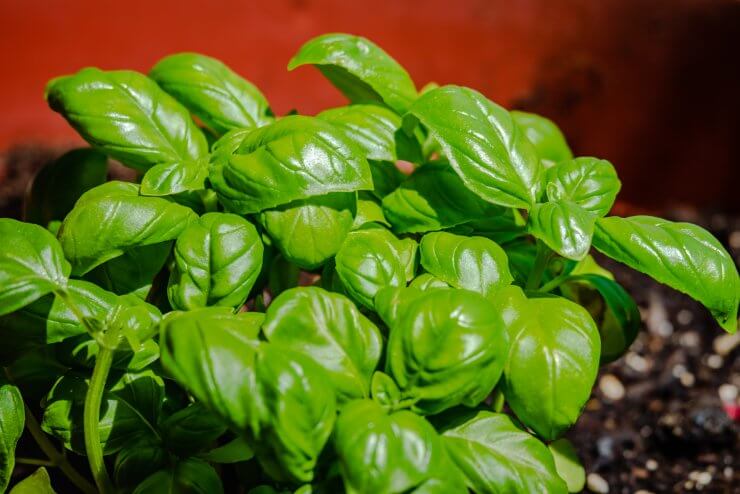
Basil
I’d like to think that when I’m in my garden, I’m one with nature. With my hands in the warm soil, the smell of fresh vegetables in the air, and the songs of the goldfinch and wood thrush all around, it can feel that way. And then? Mosquitoes. Ugh. Those little devils can ruin the most peaceful, serene moments. I discovered a secret, though. There is a plant that deters mosquitoes.
Actually, there is more than just one plant that deters mosquitoes. There are quite a few, and you can bet I started adding more of them to my garden. As a bonus, many of them deter other pests, as well. It doesn’t hurt that these plants also happen to taste great.
Discover 7 top tips for growing, harvesting, and enjoying tomatoes from your home garden—when you access the FREE guide The Best Way to Grow Tomatoes, right now!
Doing double duty: A plant that deters mosquitoes and makes a delicious addition to your garden
It’s not unusual for plants to work together to create beneficial mini-habitats. Beans add nitrogen to the soil, which helps corn grow, while corn stalks give beans a place to climb and stay off the ground. Basil can deter the tomato hornworm and other pests that wreak havoc on tomato plants. But can we get the trifecta? Is there a plant that deters mosquitoes, tastes great on your dinner menu, and is a good neighbor for the rest of your garden? Lucky for us, there is.
The aforementioned basil is one of those seemingly flawless plants. Basil deters pests that like to feed on many of your garden vegetables; it deters the mosquitoes that like to feed on you, and it’s good in darn near any recipe, from a Caprese salad to your favorite pasta sauce to a pot of beans. As if that’s not enough, to prove its superhero plant status, basil also attracts pollinators. Did I also mention that it’s easy to grow?
Other plants that deter mosquitos
Other herbs have similar superpowers. Lavender, for instance, repels mosquitoes and fleas, it’s fabulous in desserts (Helloooo lavender flan!), it makes your clothes smell lovely, and it’s perennial. Bees love it, too. And catnip (or catmint) is said to be more effective than DEET at fending off mosquitoes. It’s also easy to grow and will bring all the cute neighborhood cats to your garden.
There are medicinal herbs, too, like lemon balm. Lemon balm may help combat stress and anxiety, and at least one study found that it can improve cognitive function. Mosquitoes, however, do not enjoy the citrusy fragrance of this herb. A word of warning, though; lemon balm is in the mint family, and like mint, it can take over your garden if you don’t keep it under control.
Speaking of which, mint is also known to deter mosquitoes as well as many other garden pests. From a culinary standpoint, mint is a delicious addition to many middle eastern dishes, add it to a watermelon and feta salad for a nice flavor boost, or make a delightfully aromatic tea with it.
One of my personal favorites for cooking and growing is garlic. Like basil, garlic is good in just about any recipe you can imagine, except maybe breakfast muffins. It’s also relatively easy to grow, it has few issues with pests or disease, and it’s one plant that deters mosquitoes, along with aphids, carrot flies, cabbage worms, slugs, snails, and even rabbits. Oh! And vampires. Why?
Discover 7 top tips for growing, harvesting, and enjoying tomatoes from your home garden—when you access the FREE guide The Best Way to Grow Tomatoes, right now!
One possibility comes from very real cases of rabies that spread to humans. Interestingly, rabies may induce a tendency to bite other people. It may also heighten the sensitivity to light and the sense of smell. With its strong scent, garlic naturally became a deterrent to these “vampires.” Although, in their own way, aren’t mosquitoes little vampires, too?
What do you think? Do any of these edible plants keep mosquitoes away? I’d love to get your opinion in the comment section below.




